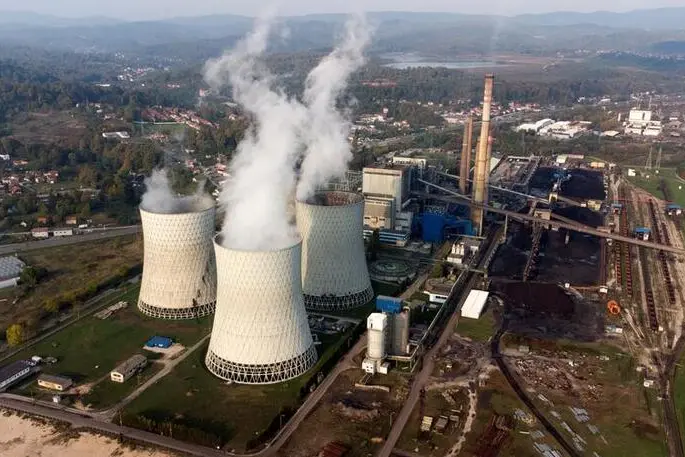PHOTO
Greenhouse gas emissions across the European Union rose in the third quarter of last year, the bloc's statistics office said on Tuesday, as economies recovered from the coronavirus crisis.
Estimates by Eurostat showed emissions by business activity amounted to 881 million tonnes of CO2 equivalents, up 6% from the third quarter of 2020 when COVID-19 related restrictions had induced a sharp economic contraction.
The electricity supply and manufacturing sectors both contributed nearly a quarter of emissions for the period, Eurostat said, while households and agriculture each accounted for 14%.
However, it added that despite the effects of the economic rebound, levels were continuing a long-term trend of steady reduction towards the bloc's targets. Third quarter emissions were down from 891 million tonnes in the same period two years earlier.
EU policymakers in December set out a second set of proposals to cut emissions this decade and put the bloc on track for "net zero" by 2050.
The measures aim to ensure that the world's third-largest emitter meets its goal to cut net greenhouse gas emissions by 55% by 2030 from 1990 levels. Its emissions were 24% lower by 2019 than in 1990.
Among individual countries, Bulgaria showed the largest rise across the bloc in the third quarter with a 22.7% increase in emissions, followed by Latvia and Greece, up 16.2% and 13.1% respectively.
Emissions dropped in Slovenia, Luxembourg and the Netherlands by between 1.6% and 2.6%.
(Reporting by Juliette Portala; Editing by Milla Nissi and David Holmes) ((juliette.portala@tr.com; +48 587 696 607))





















